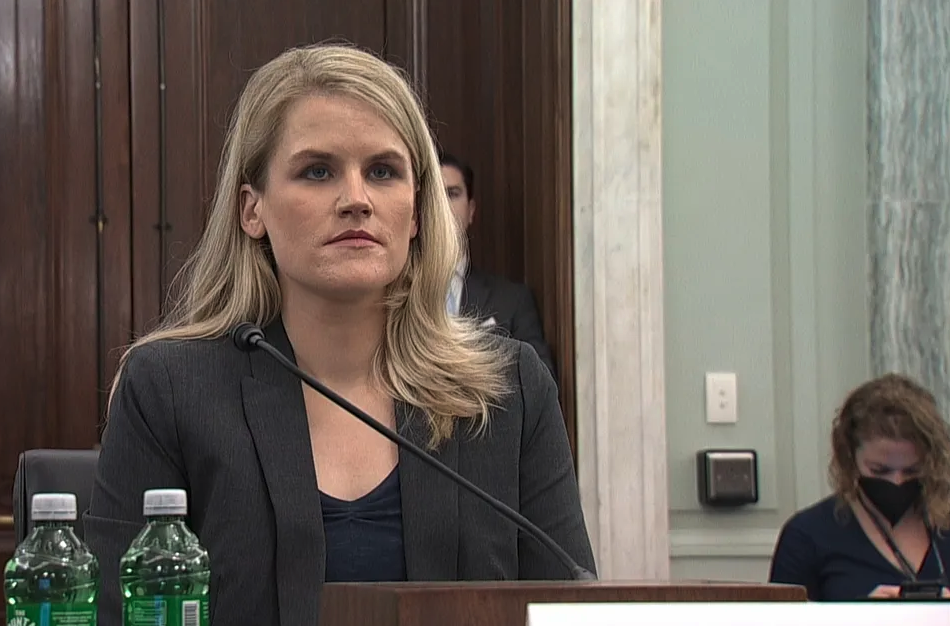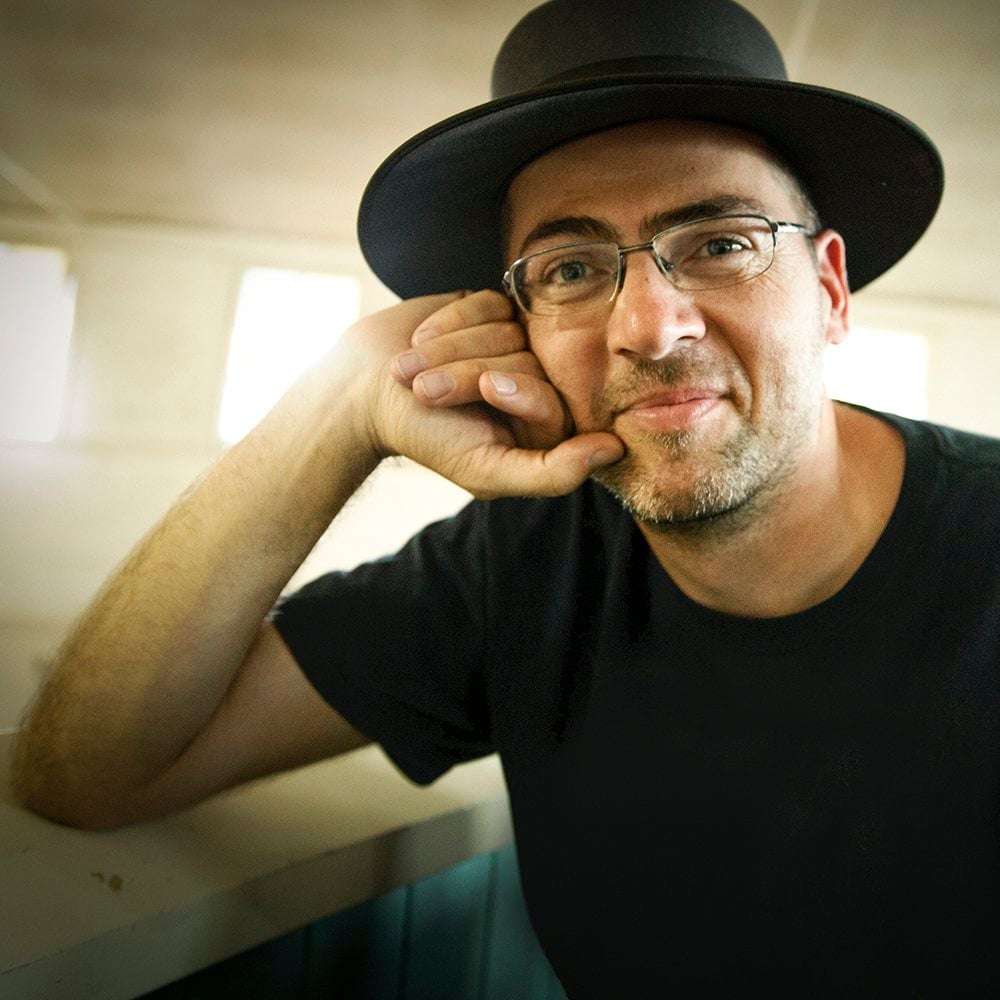
Professor Peter Greste and Facebook whistleblower Frances Haugen made a strong case for protecting truth tellers in their joint appearance at the National Press Club last week.
Having spent 400 days in an Egyptian jail on terrorism charges, media freedom fighter and ex-foreign correspondent Peter Greste knows a thing or two about what happens when governments decide journalists are the enemy.
For her part, data scientist and engineer Frances Haugen worked at Google and Pinterest before her job at Facebook, where she led the civic integrity team until it was dissolved. In 2021 she revealed the details of the social media giant’s repeated prioritisation of profit over public safety, which she said had contributed to dangerous political violence in countries including the USA, India, Burma and Ethopia.

Ultimately Haugen released 22,000 pages of damning internal documents to the world, but unlike Australian whistleblowers, she was protected by US law.
In Canberra, she emphasised that as big tech companies become more opaque (and more powerful than governments), the only people who will actually know what’s going on beneath the public facade will be company employees, making the protection of whistleblowers absolutely vital, wherever they work.
Worse than Egypt?
Australian Peter Greste explained how he’d become caught up in the whirlwind of national security laws passed in Egypt in the wake of the September 11 attacks, but noted that no country had passed more such laws than his own, in the process ‘criminalising much of what previously would have been considered as legitimate journalism.’
Since 2019, he and his organisation the Alliance for Journalists’ Freedom have argued that because Australia has no explicit constitutional or legal protections for media freedom, national security laws were effectively intruding on the media’s ability to perform its democratic role – namely to hold government to account. Greste suggested that the ‘uncomfortable journalism’ which put him in prison in Cairo was now equally risky for those here in Australia seeking to investigate what The New York Times has called ‘the world’s most secretive democracy’.
There are numerous examples, including the Bernard Collaery/Witness K case regarding dodgy happenings between the Australian government and East Timor, the potential life imprisonment of whistleblower Richard Boyle for revealing debt recovery misconduct at the ATO, and David McBride’s imminent prosecution for allegedly leaking information about Australian war crimes to the media (which became the basis of the Afghan Files).
While Attorney-General Mark Dreyfus says things have improved under Labor, Peter Greste argued at the Press Club that the changes have been purely cosmetic, in legal terms. As he put it, ‘they’re patches stitched on to legislation that hide a deeper problem’, namely the lack of constitutional protection for media freedom.

What’s the solution?
Peter Greste said the ideal would be an amendment to the Australian Constitution enshrining protection for media freedom, like other liberal democracies, ‘but given the experience of last week’s referendum and the way most people see journalists here, I reckon it would be easier to get them to vote for cane toads.’
As an alternative, he suggested the federal government could implement a Media Freedom Act modelled on the Human Rights Acts of Queensland, the ACT and Victoria, which would have ‘profound implications’ for the relationship between government and media, along with the people both are supposed to serve.
It’s hard to argue with his proposition that responsible whistleblowers working with responsible journalists can only enhance national security.
Greste quoted Anthony Albanese, who said (from opposition, in relation to Bernard Collaery), ‘the idea that there should be prosecutions of whistleblowers for what is a shameful part of Australia’s history is simply wrong.’ And yet, the cases of David McBride and Richard Boyle have been used to frighten other potential whistleblowers and media collaborators here in Australia, much as Julian Assange is being used internationally.
None of these brave individuals deserve to remain in legal limbo for revealing uncomfortable truths. Hopefully they won’t be for much longer.

Originally from Canberra, David Lowe is an award-winning film-maker, writer and photographer with particular interests in the environment and politics. He’s known for his campaigning work with Cloudcatcher Media.
Long ago, he did work experience in Parliament House with Mungo MacCallum.




I’d be interested to know what you think about the misinformation laws being passed presently in Australia. And other nations in the 5 eyes alliance.
These laws prevent anything deemed as misinformation by the government being hosted on servers due to the powers of the government to bankrupt the host with massive fines. While making their own misinformation and that of professional news services allowable under that legislation.
It will make it much harder for the kind of real information which is harmful to the interests of government and their donors much harder to be heard in the public sphere if independent media providers are silenced by the legislation.
Yes, we’ve seen during the referendum how easily the term misinformation is bandied around. The idea that the Voice was/is related to treaty or reparations is a matter of opinion not fact but to suggest so was regarded as Trumpian disinformation. It’s not such a controversial or outlandish idea that a Yes outcome would lead to a general climate of politics that favoured future treaty or reparations moves. Particularly with an enshrined Voice pushing that agenda. Surely the discussion should be allowed to happen?